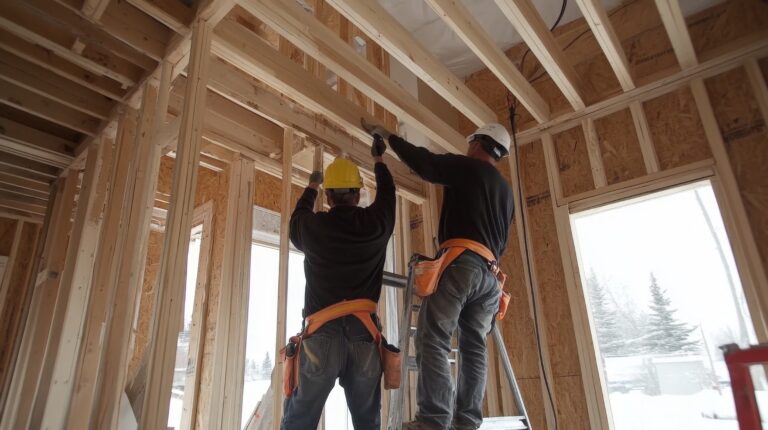The passing of HB 2720 marks a pivotal moment for homeowners and builders in Tucson, bringing transformative changes to the permitting process for Accessory Dwelling Units (ADUs). As cities across the nation grapple with housing shortages and urban sprawl, Tucson’s legislative update seeks to address these challenges by facilitating the construction of ADUs. Set to take effect on January 1, 2025, this bill introduces new rules and compliance requirements that will significantly influence residential construction in the area.
New Rules for ADU Permits
The updated regulations introduced under HB 2720 streamline the ADU permit process. One significant update is the allowance of up to two ADUs per residential lot with an existing single-family home, offering expanded opportunities for property development. A third ADU is permitted on lots larger than one acre, provided one is designated as affordable housing for households earning 80% or less of the area median income. For parcels with duplexes, one ADU is allowed, creating more flexibility for homeowners to meet housing needs.
The new regulations coming into effect from January 1, 2025, are designed to streamline the ADU permit process. One notable change is the allowance of one ADU per residential lot, which significantly impacts homeowners looking to expand their living spaces. This change offers a practical solution for families needing additional space or those interested in rental opportunities.
HB 2720 has brought about the allowance of two-story ADUs. This amendment is particularly beneficial for smaller lots, as it allows homeowners to maximize their use of vertical space without encroaching on their outdoor area.
Size limitations have also been revised to provide more flexibility. The new guidelines ensure that every lot can accommodate an ADU of at least 650 square feet, allowing for diverse design possibilities and catering to various homeowner needs. These changes are expected to encourage more property owners to consider adding ADUs to their properties, contributing to the housing market in Tucson.
In addition, the method for determining the square footage of ADUs has been revised. Under the new regulations, an ADU can be 75% of the size of the primary structure, up to a maximum of 1,000 square feet. This change allows homeowners to create more substantial and versatile ADUs, offering greater flexibility in their design and use.
Dimensional Standards and Setbacks
The integration of ADUs into existing properties must adhere to specific dimensional standards to maintain the character of neighborhoods. Rear and side setbacks are reduced to five feet, allowing greater flexibility in ADU placement while preserving privacy and functionality. These standards balance the need for additional housing with the goal of minimizing disruptions to community aesthetics.
Parking Requirements and Waivers
Parking requirements are an essential consideration in the development of ADUs. To encourage alternative transportation options and support sustainability, the new rules eliminate parking requirements for ADUs. This shift reduces the burden on homeowners and promotes the use of public transit and bike boulevards. Properties located near transit routes or within walkable neighborhoods will particularly benefit, making ADUs more accessible to diverse demographics.
Cool Roof Mandate and Sustainability
Tucson’s climate-conscious policies include a requirement for all new ADUs to feature cool roofs. These roofs reflect sunlight and reduce heat absorption, leading to lower energy consumption and greater comfort for residents. This initiative aligns with the city’s broader sustainability goals and offers long-term savings for homeowners.
Casitas Must Have Their Own Address
Another important change is the requirement for ADUs to have their own addresses issued by Pima County. This provision simplifies utility management and ensures ADUs are treated as distinct units within the residential landscape. However, separate utility metering is not mandatory, providing flexibility for homeowners managing shared resources.
Historic and Neighborhood Preservation Zones
For properties within Historic Preservation Zones or Neighborhood Preservation Zones, additional reviews are required to ensure ADUs respect the architectural and cultural heritage of the area. These reviews safeguard Tucson’s unique identity while allowing for thoughtful modernization.
Community and Economic Implications
The introduction of these new rules is expected to stimulate the local economy by creating jobs in construction and design while addressing critical housing shortages. Affordable housing provisions ensure equitable access to housing, while higher-density living supports efficient land use and urban infrastructure. Enhanced neighborhood diversity and property values are additional benefits, making Tucson a model for adaptive urban planning.
Navigating the Updated Permit Process
For those looking to apply for an ADU permit under the new rules, understanding the process is crucial. The application process involves compliance with dimensional standards, setback regulations, and cool roof requirements. Assistance is available through local organizations and professional services, simplifying the path to obtaining necessary permits. Homeowners are encouraged to consult Tucson’s Unified Development Code (UDC Article 6) for detailed guidelines.
Expert Insights and Public Reactions
Local architects and urban planners view these changes as a proactive solution to Tucson’s housing challenges. However, concerns about potential strain on infrastructure and neighborhood dynamics remain topics of discussion. As the community adapts, continued dialogue will help refine these policies to balance growth with preservation.
Long-Term Housing Solutions
The updates under HB 2720 signal a long-term commitment to sustainable and adaptable housing strategies in Tucson. ADUs address immediate housing shortages while promoting resilience against future challenges. Their integration supports multigenerational living, affordable housing, and sustainable urban development, ensuring Tucson’s growth aligns with its values.
For inquiries and further assistance regarding ADU permits and construction in Tucson, reach out to Tiny Homes of Tucson today. Our team is dedicated to helping you navigate the new regulations and make the most of your property development opportunities.


